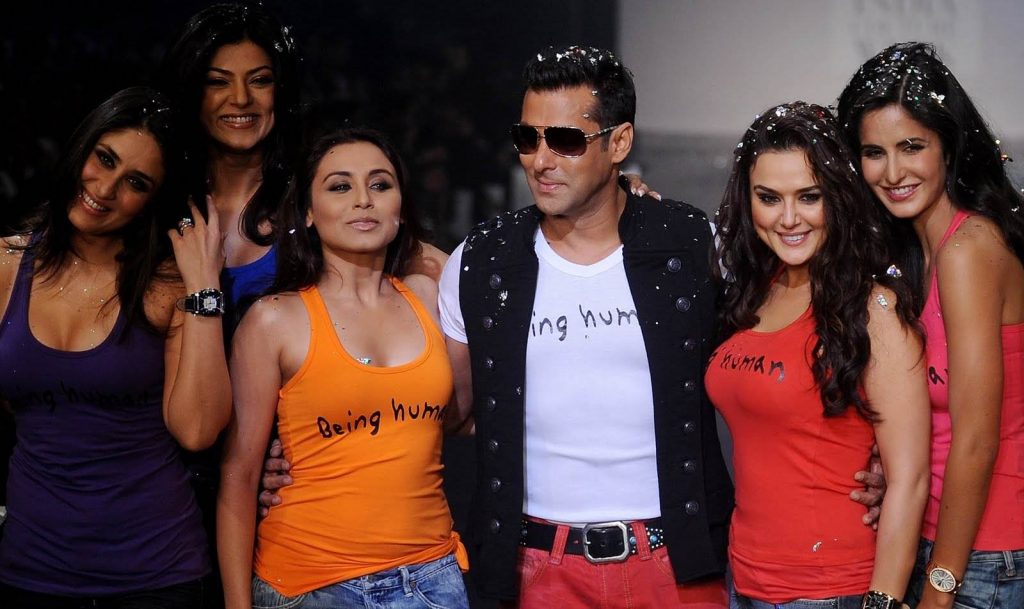
This article was republished with permission from The OdysseyOnline.
I have learned to expect very little from my favorite Bollywood actresses. When one of them posts about feminism or actively participates in campaigns for women’s rights I smile and appreciate the work they’re doing, but in reality, it’s all very surface level.
You should be a feminist and you should be using your fame to propel causes that help fellow women who are deprived of the rights they deserve. However, actresses seem to go mum, lose the powerful voice they once had about women’s rights when a fellow male actor says or does something controversial.
Numerous Bollywood fans find themselves hurt and angry that their favorites don’t say anything in these times. They don’t even condemn the words spoken. How can they, though? When Bollywood is still an industry run by men, putting three men with the same last name on a pedestal of stardom.
A prime example is seen through the Salman Khan fiasco. While describing his filming experience on the sets of “Sultan,” Khan stated:
“When I used to walk out of the ring, after the shoot, I used to feel like a raped woman. I couldn’t walk straight.”
The comment spurred outrage across India. To make matters worse, he never apologized leaving his father Salim Khan to clean up his mess. Khan received a fair load of backlash for his comment. However, his film “Sultan” still broke all box office records and he still has screaming fans rushing to his side blocking even the slightest hate toward him.
The worst part? Most of his fans are girls… unable to understand the gravity of his ignorant words. Why? Because he’s Salman Khan.
Furthermore, people expected his co-star in the film Anushka Sharma during promotions and interviews to speak up about Khan’s controversial comment. Sharma may be one of Bollywood’s most driven, outspoken, and successful feminists and activists, however calling out her very powerful co-star would virtually end her career in a matter of seconds. Despite having no personal equation with Khan, “Sultan” was the first time she appeared with the bankable actor, something that is considered a massive accomplishment for any Bollywood actor.
After the movie’s release, she noted her distaste for Khan’s comment but made sure to point out her very professional relationship with him to lighten the blow. This is the most any mainstream actor has said against Khan and it should be lauded widely.
In a broader spectrum, no actresses who attended events with Khan present, such as the IIFA awards which occurred a few days after his contentious statement, spoke up against him. Deepika Padukone, Priyanka Chopra, and Sonakshi Sinha, all vocal feminists, stood by Khan as he made public appearances alongside them to promote his movie knowing that he had made the controversial comments just a few days ago as part of his “light-hearted banter.” They are also three of the most widely sought-after actresses in the industry.
People who expect them to denounce stars like Khan fail to understand that actresses who choose to take part in furthering women’s rights, something that isn’t part of the culture of India, is a huge step in itself. Surface level commentary given by mainstream actresses is still very groundbreaking and continues to regularly make headlines. It is important to realize their job is not to propel movements and fight for causes but to act in films.
If the audience is pleased, actresses will continue working, creating some social change by using their celebrity. Believe it or not, actresses (and actors) in the industry have lists of topics their PR has labeled as no-no’s. If making a statement against an actor at the level Salman Khan is at creates a risk to their career, then they will not do it.
It’s okay for them to say they are feminists and still want to keep their jobs. Khan is known to be overbearing and pushy when it comes to people speaking against him. Take Vivek Oberoi’s career for example. Has anyone heard from him since his press conference to denounce Khan’s actions regarding his relationship with Aishwarya Rai? That was back in the early 2000s by the way. Yeah, that’s how much power Bhai has.
If Khan has enough pull with the Indian media to end a quite successful actor’s career, it would be quite easy for him to destroy any actress’s career in a culture that is always ready to crucify a woman’s character. These actresses may personally despise what Khan said and quite frankly hate the prejudice and backward mentality of the industry and country that makes it okay for him to get away with such comments. However, they can only do as much as their PR team will allow them to if they want to keep working.
As ordinary individuals, we have the ability to say whatever we want to say without a hundred media outlets waiting for us to say something controversial to eventually twist the words until you have no choice but to take it back.
Bollywood actresses have no choice but to be bystanders to situations involving their fellow industry mates and touchy subjects such as rape and abuse. Zipping their lips and throwing the key away is the go to move. Even if the words they speak may have the greatest impact and influence.

Antaraa Anandan is a 16-year-old high school student born in Chennai but raised in Naperville, Illinois. She hopes to make a
career in advocacy journalism, or working PR for a Bollywood celebrity in her future (latter will most probably not happen but, hey, one can dream). In her free time, she loves catching up on “The Mindy Project,” participating in speech team tournaments, and singing along to Arijit Singh horribly off tune in the shower.




